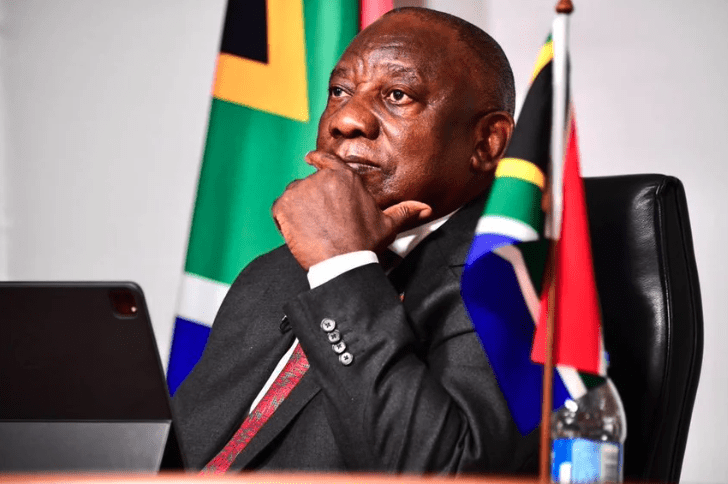President Cyril Ramaphosa has found himself at the center of a diplomatic storm after US President Donald Trump announced a suspension of all aid to South Africa due to concerns over the country’s land policy. Trump’s decision came in response to the signing of the Expropriation Act by Ramaphosa, which allows for land expropriation in the public interest and for public purposes.
In a post on his social media platform, Truth Social, Trump criticized South Africa for confiscating land and mistreating certain classes of people. The move to suspend aid sparked a strong reaction from Ramaphosa’s office, which clarified that the Expropriation Act is not aimed at confiscating private land but rather at ensuring public access to land in an equitable and just manner as guided by the Constitution.
The situation escalated when Elon Musk, a South African-born billionaire and government official under Trump, labeled South Africa’s land ownership laws as openly racist. This led to further tensions between the two countries, with South Africa’s International Relations Minister Ronald Lamola expressing hope that the White House would come to a better understanding of the legislation on expropriation.
Despite the backlash, the South African government maintained that expropriation is not a new concept and is common throughout the world. The presidency emphasized that Trump’s decision would have a limited impact as the US does not provide significant funding to South Africa beyond support for HIV/AIDS programs through the President’s Emergency Plan for AIDS Relief (Pepfar).
The Expropriation Act of 2025 has been a point of contention between the ruling coalition partners in South Africa. While the Democratic Alliance leader John Steenhuisen expressed concern over Trump’s announcement, he also acknowledged that the Act requires fair compensation for legitimate expropriations in line with the Constitution.
The ANC accused Afriforum, a South African civil rights organization, of influencing Trump’s decision. The standoff between the US and South Africa highlights the complexities of land policy and the challenges of balancing public interest with property rights in a constitutional democracy. As the diplomatic tensions continue, both countries will need to engage in dialogue to address the underlying issues and find common ground. The African National Congress (ANC) has come out strongly against the misinformation campaign being led by AfriForum, which has now garnered support from United States President Donald Trump. The party accused the minority pressure group of spreading false claims about land confiscation in South Africa, in an attempt to protect apartheid-era land ownership patterns.
According to the ANC, AfriForum has been deliberately misrepresenting the Expropriation Act in various international forums, including Washington. This campaign of misinformation has not only misled the global community but has also reinforced racist narratives and stereotypes about South Africa.
Economic Freedom Fighters leader Julius Malema condemned President Trump’s recent tweet, calling it offensive and an attempt to undermine South Africa’s sovereignty. Malema made it clear that no external threats or interference would deter them from pursuing land expropriation without compensation.
The ANC also highlighted the fact that AfriForum’s misinformation campaign has now gained traction internationally, with Trump’s comments serving as a prime example. The party emphasized that South Africa’s democratic processes and legislative measures would not be swayed by external pressures.
In response to the escalating situation, various political leaders in South Africa, including Elon Musk, John Steenhuisen, and Julius Malema, have spoken out against the misinformation campaign and reaffirmed their commitment to land reform. The ANC also provided data on US aid to South Africa, emphasizing the importance of maintaining diplomatic relations based on mutual respect and understanding.
As the situation continues to unfold, it is essential for all parties involved to engage in constructive dialogue and address the underlying issues surrounding land legislation in South Africa. The ANC remains steadfast in its commitment to achieving equitable land distribution and upholding the principles of democracy and social justice.








